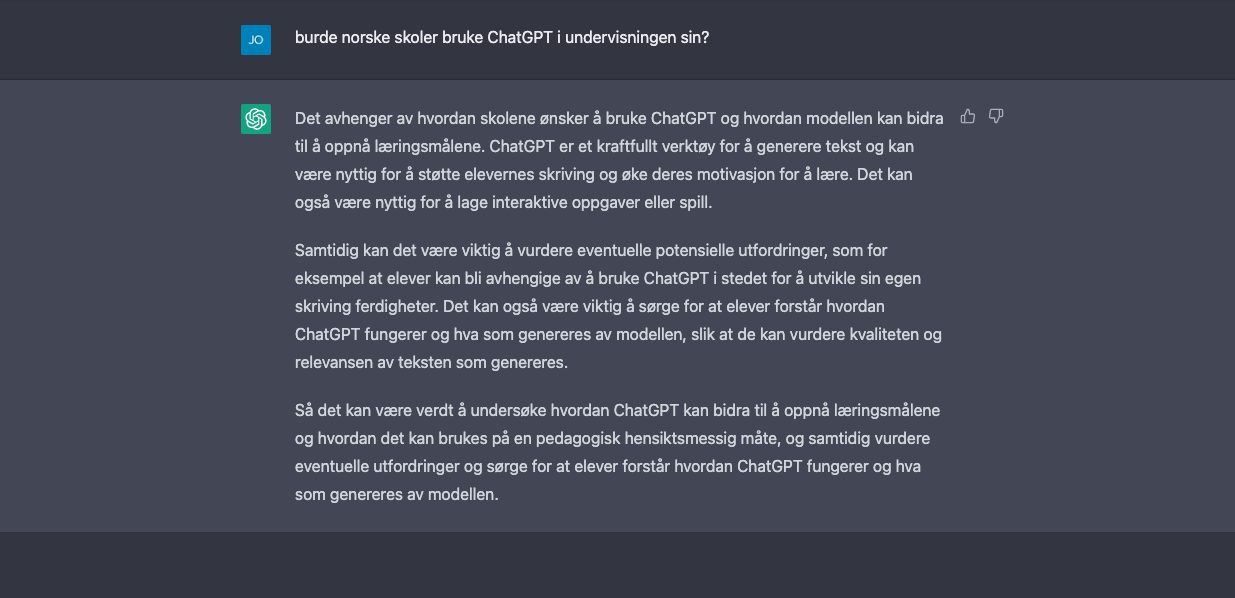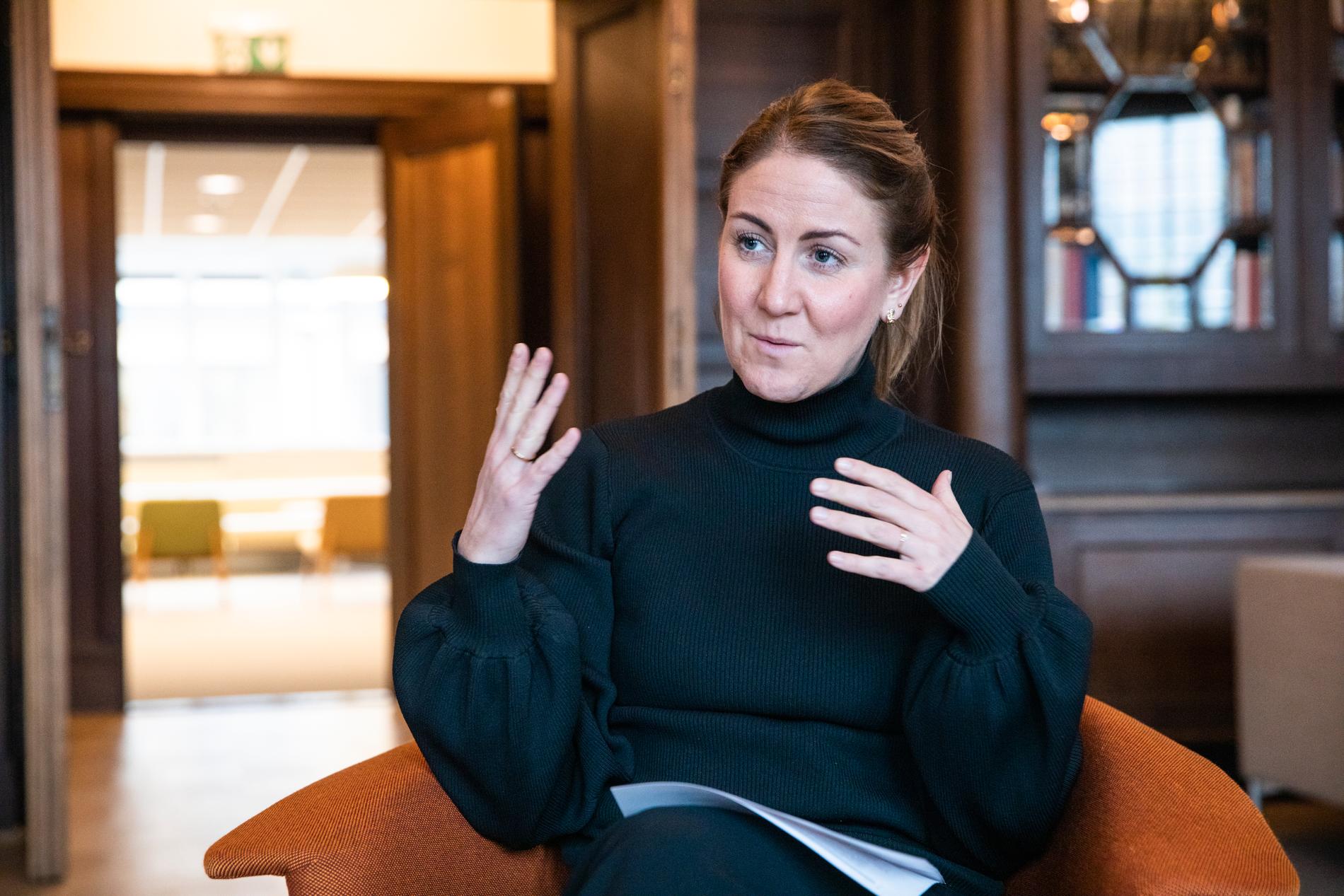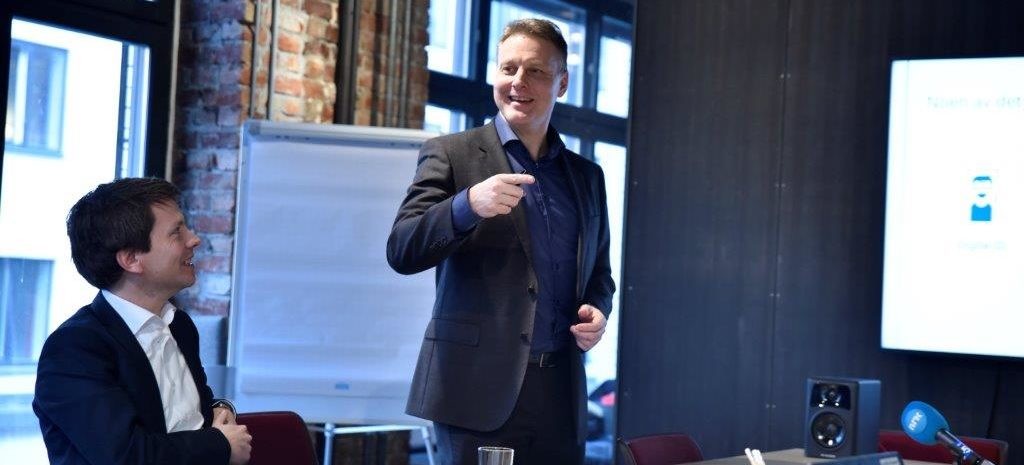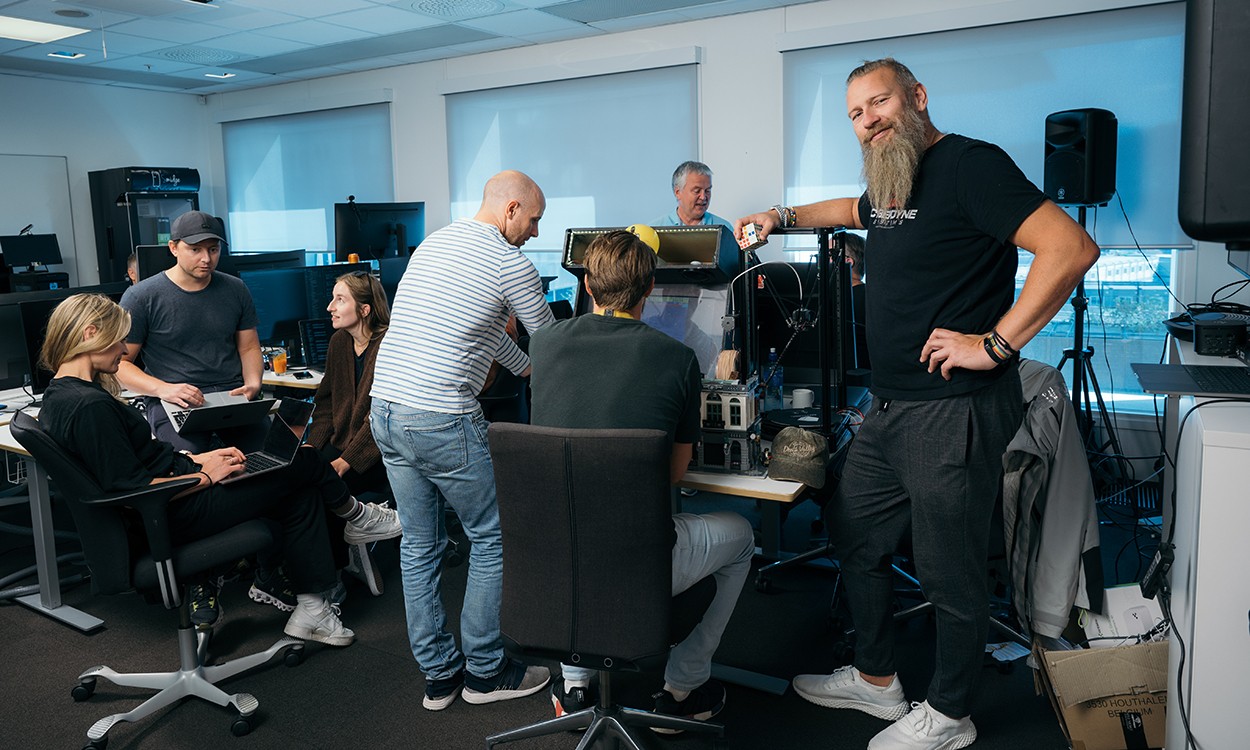Several teachers criticized the Minister of Education Tonje Brenna’s proposal regarding the use of artificial intelligence in teaching.
In recent weeks, the use of AI in schools has become a hot issue in the Norwegian teaching environment.
VG named Andrea Holm Tanderø (18), who was hit minister of knowledge Tonje Brenna visited, after student use ChatGPT AI ToolChatGPT AI ToolAI, or artificial intelligence, is a field of computer technology focused on developing algorithms and methods that give machines the ability to perform tasks that normally require human intelligence, such as learning, problem solving, planning, speech and image recognition, and understanding natural language. PS! For the record, this definition was written by ChatGPT. submit a history assignment. Tanderø then revealed the effort to the school, to emphasize a point.
Brenna was fascinated by the experiment, and encouraged Norwegian schools to explore this type of technology.
– Technology like this is a social upheaval. At the same time, our teachers are always evolving, everything is changing, so I think being curious about how to use this technology is key, Brenna told VG.
This made some teachers react.

Want guidelines
– We’re reacting to the insinuation that skeptical teachers using ChatGPT are clueless, and don’t want to “get in touch with the new technology”.
That’s what Kjersti Rognes Solbu said.
He is a Norwegian lecturer at the Fyllingsdalen high school in Bergen, and is one of several teachers who have contacted VG in recent days. He said he wanted the Minister of Education to come up with a clearer framework around the use of AI in schools.
– We wanted guidelines that were a little more central. It varies from district to district now. I know schools that rejected ChatGPT because of privacy, and it has to be assessed in that context before they want to use it. Other schools say this is top notch. So what I think is problematic is that we are told to “find out and be curious”. We need some tools to manage this.
Rognes Solbu says that this is part of a larger debate, which has been going on for a long time. He said teachers had repeatedly asked for the opportunity to limit the use of the tools when necessary, from both the Norwegian Directorate of Education and the Ministry of Education.
– Then I felt that we were considered underdeveloped, but it was about classroom management and the teacher’s ability to decide which tools to use and when.
Master in the Chronicle: “Curiosity alone isn’t enough, Brenna”
Supported by the Norwegian National Association for Education
He was supported by the head of the National Association for Norwegian Education, Siv Sørås Valand. He believes there should be room for good learning processes, and opportunities for removing digital distractions.
– I was hoping ChatGPT could be the cause of solving digital input chaos in class, but Brenna’s statement leaves me unsure.
He believes Brenna should have made it clear that independent writing, that students must learn to write, interpret, and reason, without the aid of robots, is also important.
– I’m not saying that we shouldn’t use artificial intelligence, it’s important to emphasize, but I missed the acknowledgment that we have a problem with digital interference in the classroom. It will be an addition that makes digital life even more problematic.

Like Rognes Solbu, he believes teachers need more tools to deal with the constant development of technology.
– Teachers should use their professional judgment to control what aids and tools are allowed to be used by students. Technological developments may also be about giving teachers the opportunity to control the use of tools and aids in the classroom, so that they contribute more to learning and not less.
– But isn’t that what Brenna actually said? That he wants this to get to schools and teachers?
– Yes, but we need an infrastructure that allows to have that control in the classroom. Then there must be political will, because it requires resources, says Sørås Valand.
He emphasizes that when it all comes down to it, it is about students’ writing and reading skills.
– That is a fundamental concern. Writing is a unique medium, which we must protect.
Respond to criticism
Criticism has been submitted to the Ministry of Education.
In an email to VG, Tonje Brenna wrote the following:
– Reading and writing are a very important part of what students learn in school, and should continue to be so. I understand that many are concerned about how ChatGPT, and other systems with artificial intelligence and other technologies will affect this. I am fully aware that this affects teachers, students and training.
– The Education Directorate is now looking at how we can ensure that all students receive reliable and fair assessments and how we can support training in this area. The government is working on steps on several fronts to get schools to tackle artificial intelligence in the classroom, in assessments, and for exams.

“Music maven. Evil pop culture lover. Unapologetic creator. Friend of animals everywhere.”






